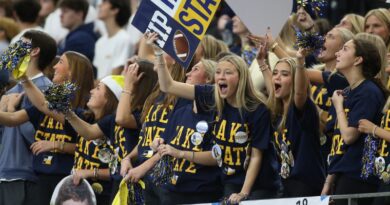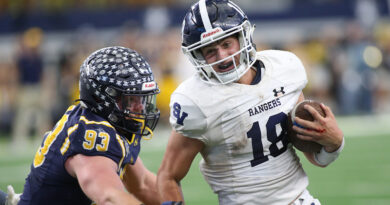Part 1 of Buddy Macatee’s Steak ’n Egg Column
 This week’s edition of Park Cities People includes the second half of Buddy Macateee’s two-part column about the old Steak ’n Egg diner on Hillcrest. In you case you missed the opener, which we published in late October, here it is:
This week’s edition of Park Cities People includes the second half of Buddy Macateee’s two-part column about the old Steak ’n Egg diner on Hillcrest. In you case you missed the opener, which we published in late October, here it is:
Memories Sizzle When Recalling Old Steak ’n Egg
Breakfast joint provided lots of hearty fare, hearty laughs
By BUDDY MACATEE
“No way, Mr. M,” said Phillip, “there is no way it’s after 7. My car radio said 6:58!”
At 6:58 a.m., I had watched Philip Wiggins pull up in front of the Steak ’n Egg, tumble out of his car while stuffing in his shirttail, zipping up his pants, and buttoning his shirt as he lurched through the front door. Phillip and I had breakfast there two or three times a year to talk about real estate, a coming together enhanced by the shared illusion that I knew more about real estate development than I did. Because he was usually a few minutes late, I proposed that if he weren’t there by 7, he would buy. He had agreed.
“Too bad, Phillip. The official clock disagrees, and you buy,” I said as I pointed to the clock over my booth that registered 7:02. “It’s Greenwich Mean Time. I may go the distance this morning with steak and eggs — how this place got its name. You almost made it!” Phillip continued to wail about the apparent injustice and insist it couldn’t be true.
About that time, a lawyer, Bob Norris, sitting in the front booth, spoke from behind his rustling Dallas News. “Phillip, Macatee is putting the britches on you. I saw him set the clock forward just before you came in. The clock’s got no lens.”
“Norris, you s.o.b., why don’t you mind your own business?” I shouted. Norris loved it, put down his paper, and smile largely. Louise, the night manager, chuckled and chewed on her match. Phillip got back his color, finished dressing, and sat down, all smiles.
A Chick-fil-A has recently replaced a Zuzu across Hillcrest from SMU. Before the Zuzu, there was this Steak ’n Egg, which kept its doors open 24 hours a day. Steak ’n Egg had good food, but the flavor of the place was even better. Here, life’s parade marched to the music of the moment, and the outrageous blended with the commonplace as the local divine comedy performed round-the-clock.
The front door of the little building opened onto six stools at a counter. Behind the counter a galley kitchen displayed gas burners, a griddle, exhaust fans, refrigerators, and utensils. If you sat in the front, you got the primordial satisfaction of eating in a kitchen, the home center where most of us took our meals growing up and still may. Smells of coffee, frying bacon, eggs, hashed brown potatoes, and toasting bread gratified the soul and wakened the stomach.
The early sojourners were men, many of whom stirred their coffee even if it was black. Some of the regular early birds, including myself, hung around just for the colorful sitcom that ran its course at the same time each morning. I got there about 6:45 a.m., when Louise presided over an environment unyielding as a truck stop. A woman of chiseled features, Louise resembled Marie Dressler, who played Tug Boat Annie in silent movie days. Her unblinking gray eyes stared from beneath a wig that must have been a half-size too large. Her mouth always clamped a match. Until I got to know her, ordering food was as intimidating as a deposition.
When I alluded to her grim visage, she told me that her sternness came from dealing for 36 years with lying no-account men and drunk college students. One night, she said, a graduate student, drunk and flippant — she’d served him before — came in about 3 a.m., unusually profane and unruly. Louise said she’d took all she was going to take and flipped a pocket comb on the counter in front of him. “I gave it to him like God gave it to Moses,” she said. From the core of his sozzled brain, the powerful message to depart the premises found its way to his feet. Louise said the comb never failed. Beneath Louise’s façade, however, simmered a kindly spirit. Students came in at night after studying, she said, and told her about themselves.
One, a kid who wore thick glasses, used to come in at 1 or 2 a.m. He studied late because he wanted to do well, his courses were difficult, and his afternoons were taken since he attended SMU on a football scholarship. Louise said she talked with the young man about how each of them had been raised and what life out there held. They came to depend on each other, she said, and he came in until he graduated. When I asked her his name, she said, “Eric Dickerson.” I don’t think she ever knew he was anything but a nice young man who worked hard and dreamed of being somebody.









This is great, love hearing about what used to be around town.